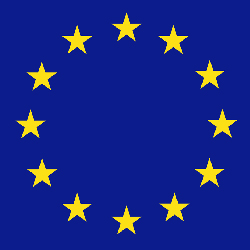Offshore
European Commission's Golden Visas Warnings Unfair - IMC

Controversy about citizenship/residency-by-investment programmes refuses to die down.
The industry group representing the “golden visa” market
yesterday criticised the European Commission’s report warning
about these programmes. The Investment
Migration Council said the Commission’s report was
unbalanced.
“These programmes create genuine societal advantage not just
through increased government revenue, employment creation and
enhanced infrastructure spending, but through the generation of
new opportunities across all levels of society,” the IMC said in
a statement.
“National statistics of Malta, Greece, Latvia, Spain and Portugal
reflect the contribution made through foreign direct investment,”
it continued. Small countries’ benefits from these programmes
were not noted by the Commission, it said.
Dozens of nations in Europe, and further afield in Asia and
the Caribbean for example, operate such visa programmes,
typically targeting high net worth individuals and requiring a
minimum investment in return for a passport or residency of some
kind. These programmes are controversial: the UK recently
suspended its Tier 1 Investor Visa regime pending a review; a few
years ago, Canada also suspended its scheme amid political
controversy. The IMC has actually criticised schemes deemed to be
poorly conceived, such as that of Hungary. Montenegro and
Moldova are the latest countries to roll out these
programmes.
With Europe hit by money laundering scandals in several
jurisdictions, HNW visas are coming under pressure as a potential
crack in the wall.
The Commission yesterday issued a paper, Investor Citizenship
and Residence Schemes in the European Union, and stated:
“Investor citizenship and residence schemes pose risks for the
Member States and the Union as a whole, including in terms of
security, money laundering, corruption, circumvention of EU rules
and tax evasion.” It is creating a “group of experts” to monitor
these programmes.
The IMC argued that operators of such programmes had nothing to
fear from high transparency and rigorous checks.
“We support enhanced transparency by putting in place better risk management, control systems and oversight mechanisms, as well as calls for greater cooperation on information-sharing about applicants for citizenship and residency; in fact the IMC stands ready to cooperate with legislators as other industry bodies do. In actual fact, we are proactively working with our industry members and countries to conduct research into the following areas we independently have identified as priorities: National Security and Investment Migration (IM); Societal Benefits of IM; Financial Crimes and IM,” it said.